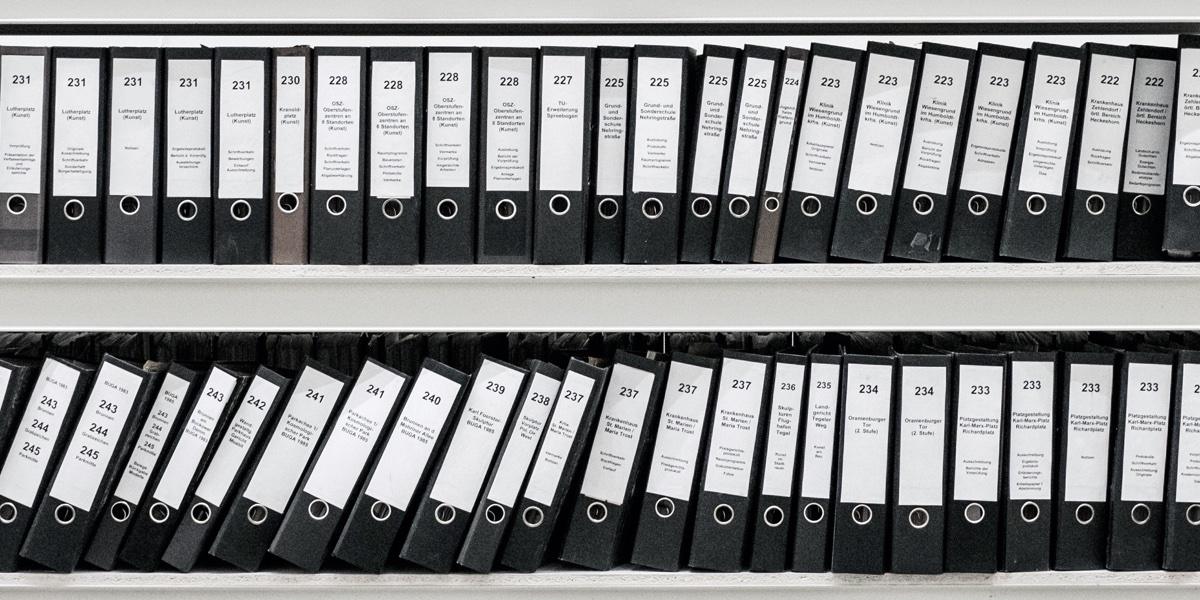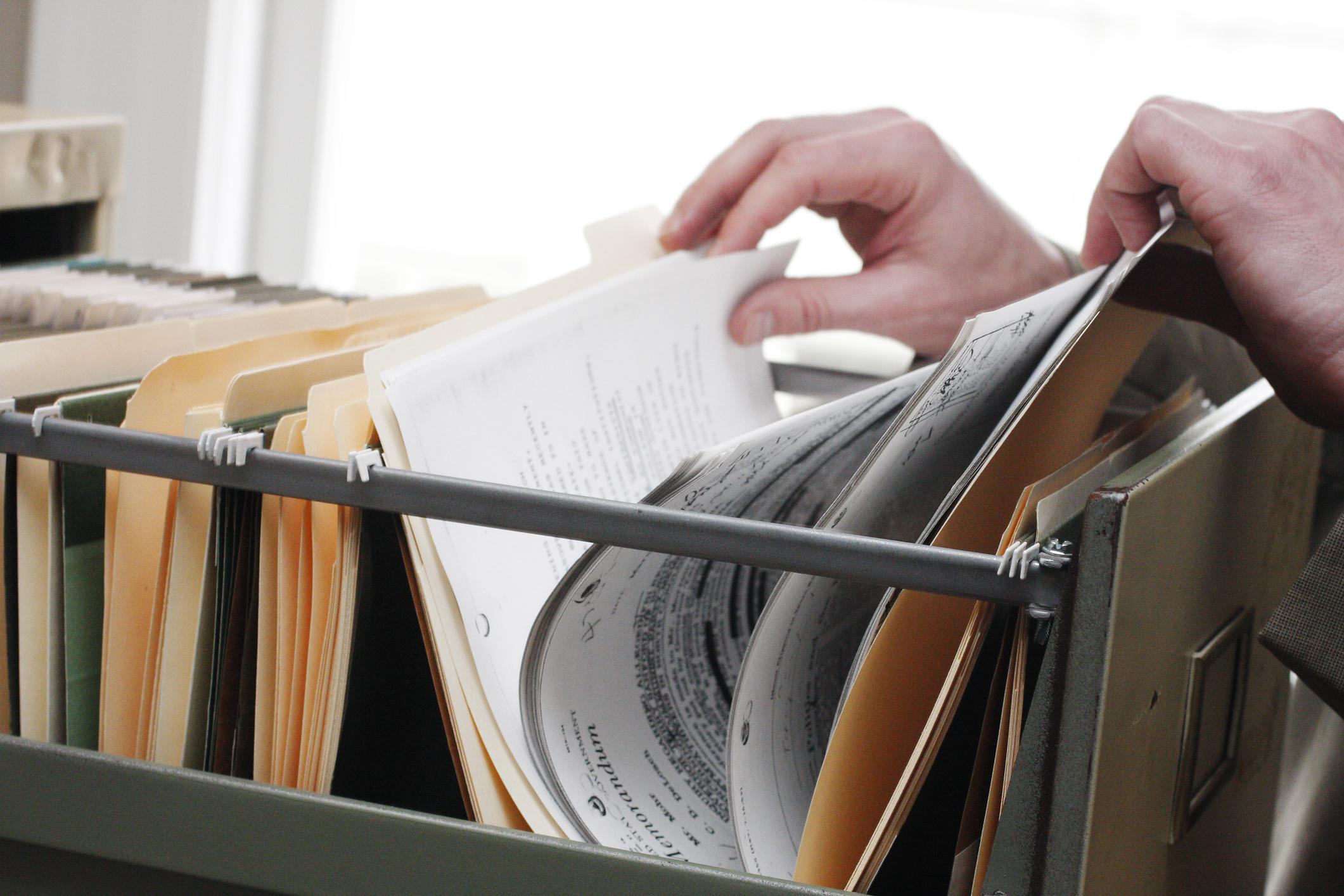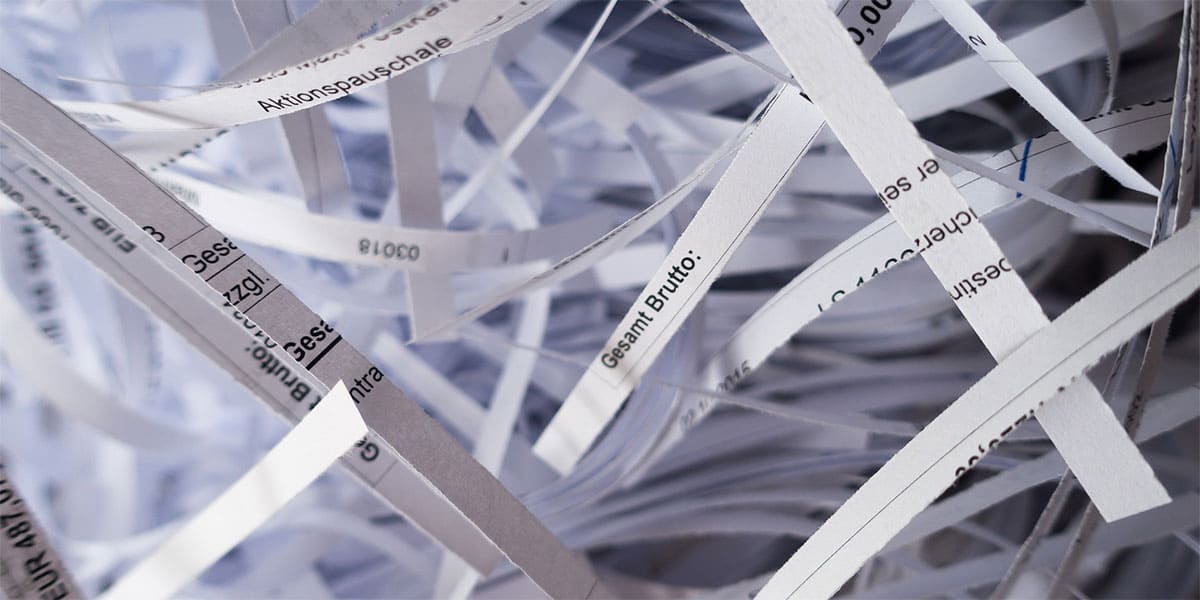Document Archiving: What’s the best way to store documents?

Your birth certificate. Your tax return forms. Your business financial records. The deed to your property. Even though you might not use them very often, these are all important documents that you wouldn’t want to lose—or even worse, to fall into the wrong hands.
But ask yourself this: are you really confident that you’ve stored these documents away securely? Are they well organised and quickly accessible in the event of an emergency?
If not, don’t worry—that all changes today!
We’re going to be talking about document storage and archiving and showing you the best ways to store both your paper and digital documents so you can have peace of mind knowing they’re safe.
So what is the best way to store your documents? Before we answer that question, let’s talk about why it’s important in the first place

Why Bother With Archiving?
When we store documents that we no longer actively use, it’s known as archiving. Here are just five of the many reasons why archiving is so important for both businesses and individuals.
1. Meet Regulatory Requirements
These days, data protection is something most businesses are keenly aware of. In light of important recent updates to the Data Protection Act (GDPR, anyone?), businesses are now under increasing pressure to properly and securely manage consumer data—or else face hefty fines. That requires them to have effective data management processes and secure document storage solutions.
Other regulatory requirements dictate that certain financial records be kept for a set number of years. Document archiving can help businesses to meet these requirements by allowing them to safely store data and documents until they’re no longer required and can be destroyed.
2. Reduce Costs & Save Space
Whether you’re running a big international company or fledgling startup, it’s important to save costs where you can. Document archiving can help with this by freeing up space and reducing operational costs. The fewer documents you have on-site to manage, the less time and money has to be spent on managing them.
3. Improve Workflow & Performance
Proper document archiving can improve your business workflow and performance. According to estimates, as much as 80 percent of production data doesn’t need to be readily accessible. By archiving this non-critical data, you can streamline access to the rest of your data and potentially improve your performance.
4. Identity Theft Protection
It’s not just businesses that benefit from archiving either. All of us have important documents that could potentially be used for identity theft.
Worryingly, a report from the Consumer National Research Center found that a quarter of Americans have at some point lost an important document. (And in the UK, we’re not far behind.) This shows just how important it is to make sure you’ve stored your documents away safely.

What Are the Different Document Storage Options?
When it comes to archiving your documents, there are three main storage solutions to consider: traditional storage, digital storage, and scan on demand storage. Below, you’ll find a brief overview of each of them.
Traditional Paper Storage
Traditional document storage is essentially paper storage. It’s when you archive your paper documents by filing them away, or by paying an off-site secure storage facility like Storage Vault to store them for you. It’s common practice for large businesses that need to maintain a paper trail of non-mission-critical documents.
Digital Storage
A few decades ago, document storage for businesses meant rows and rows of filing cabinets. It meant spending money on vast quantities of paper, pencils, and people to organise them. Fortunately, thanks to modern technology, that’s no longer required. (Well, in most cases, at least.)
Now, it’s possible to digitise all your documents using a scanner and shred the paper copies that aren’t needed. This is what we call digital storage.
There are document archiving companies out there that will handle the whole process for you. They’ll digitise your documents, give them back to you on USB drives or CDs, or back them up on the cloud.
The advantage of digital storage is that it saves a ton of space. You don’t need any physical space to store your document—everything’s stored in cyberspace.
However, this isn’t for everyone. Many business owners like retaining physical copies and don’t like the idea of trusting their entire document archiving system to a computer.
Scan On Demand Storage
Scan-on-demand document storage is kind of the best of both worlds. It’s a solution in which a company will store your paper documents for you off-site but will also scan them and send you a digital copy upon request.
This makes it a good option for businesses that want to store a large amount of documents off-site but may still occasionally need to access them.
However, scan on demand solutions are more expensive than ordinary paper storage as you’re paying for an additional service.

Storing Documents in Paper Form
You might think that storing your documents in paper form is redundant in the modern digital age, but that’s not necessarily true. There are still lots of reasons to consider storing a hard copy of your documents. Here are a few of them:
- Paper documents aren’t vulnerable to cybersecurity threats like data breaches
- Having a paper copy is an important backup in case of catastrophic data loss
- It can be better to have paper documents available to hand for ease of access
- Some official documents can’t be easily digitised
Where Should I Store My Paper Documents?
Ultimately, the best way to store your documents depends on how much you need to store and how much you’re willing to spend. Here are your two main options.
1. In-house Storage
In-house storage is a good option for individuals and small businesses that only have a small number of documents to store. If you choose to go down this route, you need to make sure you have the equipment needed to store them securely.
For really important documents, you may want to consider purchasing a fireproof safe as this will ensure that your paper documents can survive anything catastrophic happening to your premises.
If you choose to go with regular filing cabinets or other storage units, make sure they’re secure and keep them organised with paper clips and separators.
2. Storage Facilities
Using off-site storage facilities is a cost-effective solution as they offer excellent security and affordable space.
When choosing a storage facility, consider the following:
- How close the facility is to your workplace? Could you access your documents quickly in a pinch?
- Records management services. Depending on the documents you plan on storing, you may want to choose a facility that offers services like indexing and file retrieval
- The shelving quality. Choose a facility that boxes records and holds them on metal shelves. Storing them on the floor puts them at risk of water damage from spills
- Security and access. It goes without saying that you should make sure your chosen facility is secure, with both internal and external cameras and properly-vetted employees.
- Climate control. Some facilities use climate to control to guard against paper degradation. Consider if you’ll need this feature and choose a facility accordingly.

Storing Documents Digitally
If you don’t want to invest in on-site or off-site document storage solutions, you may want to store your documents digitally. This can reduce costs by eliminating the need for storage space and improve your workflow by making it quicker to access your documents digitally.
There are a few different digital document storage solutions to choose from, such as:
- Use Windows libraries to store documents on your hard drive
- Store your documents in the cloud via a service like OneDrive or Google Drive
- Backup your documents to external storage hardware like removable hard drives
- Store documents using a specially-designed DMS
The last of these—using a DMS—is probably the best way to store your documents digitally. But what is a DMS? Let’s find out.
What Are Document Management Systems (DMS)?
Document management systems are software solutions that help you to file, store, and manage your documents. They’re kind of like a digital bookkeeper. They take care of the kind of physical document filing practices you’d do to organise your paper documents, but electronically.
There are many different document management systems on the market, but most of them have the same basic functions. They provide storage, security, indexing, and retrieval capabilities. They also store metadata (information about the documents), which makes it easier to carry out audits and control access to different documents.
These systems are a crucial part of business operations for companies that have to manage a lot of documents.
Best Document Management Software
As there are so many document management software systems out there, it can be difficult to know which one to go with.
The best choice for you will largely depend on how much you want to spend on a DMS system, what features you really need, and what kind of documents you need to store. Some of the best DMS providers include:
- Templafy
- Docuware
- MasterControl Document Control
- M-Files
- XaitPorter

General Tips for Document Storage
Whichever way you choose to store your documents, there are certain good practices you should follow in order to make sure your storage system stays organised and efficient. Below are some tips that can help you to do this.
1. Store your documents with accessibility in mind
If you’re storing in-house, you’ll probably be able to save some money, however, it’s important to have a good system in place to make sure your archived documents are easily accessible.
Consider storing documents of the same type together and be sure to label them so you can pick out the necessary documents easily.
2. Keep track of when your documents can be destroyed
Archiving documents is important to ensure that you remain compliant and have evidence such as receipts and payslips when necessary. However, once documents are a few years old, they often no longer need to be kept.
When archiving documents, label them with a destruction date when they will no longer be needed. This will make it easy to keep on top of out of date documents and ensure that you are using your storage space efficiently.
3. Protect your paper documents from wear and tear
To make sure your documents don’t get damaged, you need to think about wear and tear. Even if they’re stored securely, they can still become damaged from frequent handling, sunlight exposure, and spills. Place them inside plastic page slips before filing them away to reduce the risk of wear and tear.
4. Consider bank safe deposit boxes if storing documents off-site
Banks will often give you a discount on safe deposit boxes if you’re an existing customer. Safe deposit boxes can be a good off-site paper storage solution if you only need to store a very small number of important documents.
5. Think about your storage box materials and design
Some materials hold up better to wear and tear than others. If you’re choosing to store your files on-site in storage boxes, try to choose something durable and hard wearing like metal or plastic. You can make better use of your available storage space if you choose stackable boxes.
6. Make sure you store documents in a cool, dry place
Heat and humidity are paper killers. To keep your documents in good condition, try to store them in a cool and dry place. If you live in a humid climate, consider using an AC unit or dehumidifier to control the humidity of your storage space. If you’re storing off-site, keep an eye out for any signs of damp at the facility that you’re considering.
7. Make sure they’re safe from natural disasters
If you’re storing important documents in-house, make sure you’ve thought about any potential risks from natural disasters. Keep them elevated off the ground to guard them against flooding, and opt for a fireproof container if possible.
Happy Archiving
We’ve covered pretty much all there is to know about document storage. Hopefully, you’ll now be able to make a more informed decision about the best way to store your documents.
Which solution works best for you? Let us know your thoughts in the comments!
Get in touch




